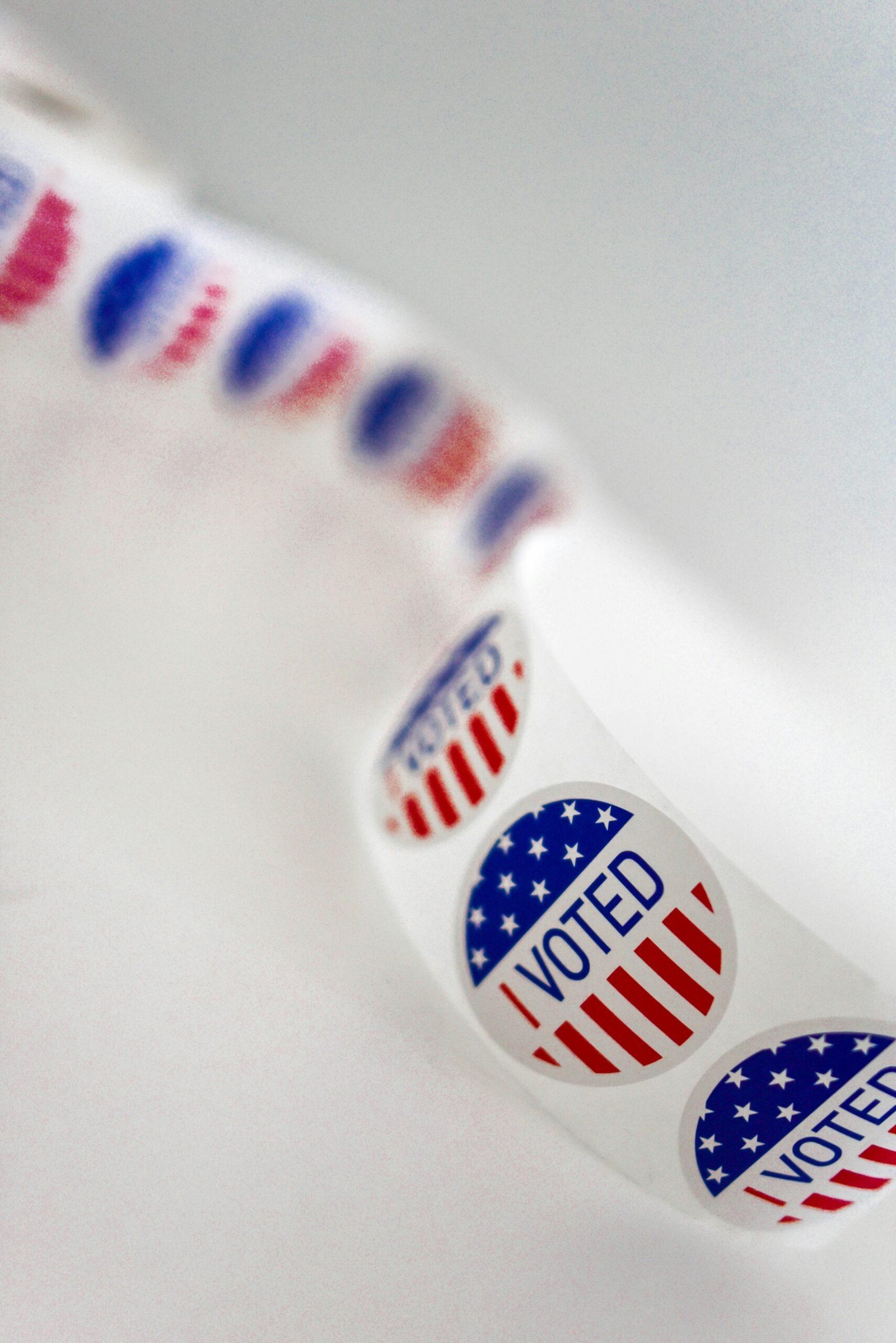
Introduction to Trump’s Television Journey
Donald Trump’s venture into the world of television marked a significant turning point in both his career and the media landscape. Trump’s entry into television can be traced back to the early 2000s when he became the executive producer and star of the reality show ‘The Apprentice.’ This show not only showcased Trump’s larger-than-life personality but also highlighted his business acumen and approach to entrepreneurship. Over the years, ‘The Apprentice’ transformed into a cultural phenomenon, drawing millions of viewers and cementing Trump’s status as a household name.
The format of ‘The Apprentice’ was innovative for its time, combining entertainment with elements of business strategy. Contestants competed for a job in one of Trump’s businesses, which allowed audiences to get a closer look at the workings of the corporate world. This marriage of reality television with business principles captivated viewers, making Trump a prominent figure in the entertainment industry rather than just a real estate mogul. The show’s success also positioned Trump as a savvy businessman capable of navigating the complexities of reality TV, thereby allowing him to extend his brand into various sectors.
More informationPolitico Under Fire: The Controversial Cancellation of Government FundingAs ‘The Apprentice’ gained traction, Trump capitalized on his newfound television fame, increasingly intertwining his persona with the broader narrative of American culture. His strategies on the show often mirrored his real-life business dealings, showcasing his assertive style. The success of ‘The Apprentice’ not only forged an enduring television legacy but also laid a crucial foundation for Trump’s later forays into politics, particularly during his 2016 presidential campaign. The integration of entertainment and politics became more apparent as Trump utilized his media influence to mobilize a fan base, further blurring the lines between the two spheres.
The Phenomenon of ‘The Apprentice’
‘The Apprentice’ emerged as a groundbreaking reality television show that first aired in 2004, captivating audiences with its unique concept centered around the world of business and competition. Hosted by Donald Trump, the show combined elements of a traditional game show with the high-stakes environment of corporate America. Contestants, vying for a position within Trump’s organization, were tasked with various business-related challenges aimed at testing their skills in leadership, teamwork, and strategy. Each episode culminated in the infamous boardroom scene, where contestants faced Trump and his advisors, leading to dramatic eliminations that kept viewers on the edge of their seats.
Trump’s hosting style played a pivotal role in the show’s appeal. His persona, characterized by a mix of authority, charisma, and bluntness, drew viewers into the competitive dynamics. The phrase “You’re fired,” became a cultural touchstone, further cementing Trump’s image in the public consciousness. The show’s format, which blended entertainment with business insights, made it distinct from other reality shows at the time. ‘The Apprentice’ not only entertained but also provided lessons in entrepreneurship, thereby attracting a diverse audience ranging from aspiring business professionals to casual viewers.
More informationUnraveling the Life and Career of Tucker CarlsonThe success of ‘The Apprentice’ redefined the reality television genre, demonstrating that shows revolving around business could capture widespread interest. This phenomenon contributed significantly to Trump’s rise in popularity, laying the groundwork for his later foray into politics. The show’s impact extended beyond mere entertainment, influencing public perceptions of business leadership, and establishing Trump as not merely a businessman, but also a prominent media figure. In light of these factors, ‘The Apprentice’ stands as a landmark in both television history and Trump’s career trajectory.
Cultural Impact of Reality TV on Trump’s Image
The emergence of reality television in the early 2000s revolutionized how public figures were perceived, with Donald Trump’s ‘The Apprentice’ serving as a pivotal example of this shift. The show not only highlighted Trump’s business acumen but also crafted a larger-than-life persona that resonated with viewers. It combined entertainment with a semblance of authenticity, showcasing Trump as a decisive leader and successful entrepreneur. This portrayal played a significant role in shaping his public image, contrasting sharply with traditional political figures who often adhered to a more reserved and formal approach.
Reality TV has a remarkable capacity to humanize its subjects, creating a connection between them and the audience. Trump’s unabashed personality and catchphrases, notably “You’re fired,” became part of popular culture, knitting his image into the fabric of American life. This cultural phenomenon positioned him not merely as a businessman but as a relatable figure, someone viewers felt they knew personally. Over time, this familiar image laid the groundwork for his eventual political aspirations, effectively blurring the lines between entertainment and politics.
The media angle cannot be overstated; it played a crucial role in amplifying Trump’s celebrity status. The intertwining of his television career with his brand helped to alter public perceptions, turning him into a viable candidate for the highest office. As media platforms began to cover Trump in both entertainment and news contexts, they solidified his image as a powerful figure not just in business but also in the political landscape. This complex interplay between reality television and political imagery ultimately cultivated an environment where Trump’s ascent to the presidency seemed not just possible, but inevitable.
Media Influence: Trump’s Strategic Use of Television
Donald Trump’s engagement with television has played an integral role in shaping his public persona and political ambitions. His early foray into the television landscape can be traced back to the reality show “The Apprentice,” which significantly elevated his brand visibility and cultural relevance. The show’s premise, showcasing Trump as a decisive businessman, laid the groundwork for his later political endeavors. The massive viewership demonstrated Trump’s ability to connect with the audience, a skill he would effectively leverage in future media appearances.
Trump’s strategic use of television did not end with “The Apprentice.” He adeptly transitioned into political discourse through television news networks, particularly during the 2016 presidential campaign. His frequent appearances on various cable news programs allowed him to cultivate a direct line of communication with potential voters. By dominating news cycles and utilizing sound bites that resonated with his base, Trump deftly turned media coverage to his advantage. His mastery of television enabled him to maintain a consistent narrative, positioning himself as an outsider challenging the political establishment.
The rise of social media further amplified Trump’s television presence, allowing him to reach audiences beyond traditional broadcasting. He frequently utilized Twitter and other platforms to comment live on media portrayals, essentially creating a feedback loop that kept him consistently in the public eye. This crossover not only reinforced his brand but also established a unique rapport with followers anxious for his unfiltered perspectives. The combination of strategic television appearances and agile social media use bolstered Trump’s image as a dynamically engaged politician.
In conclusion, Trump’s adept manipulation of television and media landscapes has significantly influenced his political narrative. From his early reality television stint to his active presence on news networks and social media, Trump has demonstrated a remarkable ability to harness the power of media to fortify his political brand.
From Reality TV Star to Political Player
Donald Trump’s journey from a reality television star to a prominent political figure exemplifies a notable transformation in contemporary media and politics. Initially gaining fame through the hit reality show “The Apprentice,” Trump cultivated a larger-than-life persona that resonated with audiences across the United States. The show highlighted his business acumen and decision-making style, which many viewers found entertaining and relatable. This televised presence allowed him to bypass traditional political channels in favor of a more direct connection with the American public, becoming a household name.
As Trump transitioned into the political arena, he leveraged his established celebrity status to garner support. The qualities that made him a captivating television personality—his brashness, confidence, and straightforward communication style—became significant assets in his campaign strategy. His ability to connect with voters on social media, combined with a knack for catching the news cycle’s attention, helped him maintain a visible presence in the media landscape. Such tactics were crucial as he sought to appeal to a voter base that was increasingly disillusioned with conventional political figures.
Moreover, Trump’s foray into politics coincided with a shift in how media interacts with political figures. His appearances, often filled with controversy, generated headlines and discussions, effectively converting media attention into political capital. This intertwining of reality television and politics redefined the narrative surrounding candidates and highlighted the growing relevance of personality over policy for many voters. Trump’s unique evolution—coupled with the dynamics of modern media—facilitated his rise to the presidency, showcasing how a former reality TV star could effectively transform into a significant political player. His journey serves as a case study of the powerful influence of media in shaping political personas and the electoral landscape.
The Ratings Success and Its Political Implications
Donald Trump’s foray into the television industry, particularly with the reality show ‘The Apprentice,’ marked a significant milestone not only in entertainment but also in the political sphere. The show, which debuted in 2004, garnered consistently high ratings, establishing Trump as a household name. This phenomenon exemplifies how media visibility can translate into political leverage. The series blended business acumen with personal drama, captivating audiences and thereby creating a loyal viewer base that would later translate into political support.
As Trump transitioned from reality television to a political career, the viewership numbers of his shows remained a crucial metric reflecting his influence on public opinion. High ratings during Trump’s tenure highlighted his ability to engage a substantial audience, which perhaps laid the groundwork for his successful presidential campaign in 2016. This relationship between entertainment and politics is not merely coincidental; rather, it defines a new era where television ratings serve as a barometer for political viability. Trump’s appearances on various political shows, including his alignment with Fox News, further emphasize this connection, showcasing how media platforms can enhance a political figure’s reach and effectiveness.
The political implications of these ratings successes cannot be understated. Through these platforms, Trump was able to shape narratives and sway public perception, utilizing his entertainment background to his advantage. The dramatic rise in ratings for Trump’s political commentary aligns with an increasing populist sentiment in the United States, signaling a shift in how politics is consumed. Ultimately, the blending of reality television and politics illustrates the profound impact that ratings success has had on shaping the contemporary political landscape, suggesting that media presence is now a potent currency in political engagement.
Fox News Alliance: A Match Made in Television Heaven
The alliance between Donald Trump and Fox News represents a significant intersection of media and politics in contemporary America. This partnership, which began to solidify during Trump’s ascent in the political landscape, has played a crucial role in shaping public perception and understanding of his policies and persona. The relationship aligns seamlessly with Trump’s broader media strategy, one that leverages television as a primary vehicle for communication. Fox News, with its substantial reach and influence, has become a powerful platform for Trump, helping to amplify his messages to a diverse and expansive audience.
Throughout Trump’s presidency and beyond, Fox News has consistently been a staunch supporter, showcasing a favorable coverage that often blurs the line between journalism and advocacy. This synergy has not only empowered Trump to resonate with his base but has also effectively shifted narratives within the broader political discourse. The numerous appearances by Trump on Fox programs, including town halls and interviews, have reinforced his messaging while allowing the network to maintain a distinctive position as a key player in conservative media.
The implications of this relationship extend into the fabric of American political discourse. By prioritizing certain narratives and framing issues in alignment with Trump’s viewpoints, Fox News has wielded significant influence over its audience’s political beliefs. This dynamic has raised questions about the role of media in shaping democratic processes, netting both praise and criticism from various quarters. As Trump’s connection with Fox News continues to evolve, understanding this alliance becomes essential for comprehending not only his media strategies but also the changing landscape of American political engagement.
Critiques and Controversies Surrounding Trump’s Media Influence
Donald Trump’s extensive involvement in media has elicited numerous critiques and controversies that have significant implications for journalistic integrity and ethical boundaries. From his time as the host of “The Apprentice” to his association with Fox News, Trump has demonstrated a unique ability to blend entertainment with political commentary, raising concerns among media professionals and scholars alike.
One of the primary critiques centers around the way Trump’s presence has blurred the lines between factual reporting and sensationalism. His approach has often been characterized by the use of hyperbolic language and a focus on emotive narratives, leading to increased polarization among audiences. This shift towards entertainment-driven storytelling compromises the core tenets of journalism, which aim to inform the public with accuracy and objectivity. Critics argue that Trump’s media style encourages misinformation and cultivates an environment where alternative facts can thrive, ultimately eroding trust in reputable news sources.
Additionally, Trump’s media influence poses ethical dilemmas regarding accountability. As a prominent public figure, his statements can have far-reaching consequences, yet the repetitive cycle of media coverage often amplifies his voice without sufficient scrutiny. This raises concerns about the media’s role in holding powerful figures accountable, as well as the potential normalization of controversial rhetoric. Major media outlets must grapple with the responsibility of reporting Trump’s actions and statements while navigating the delicate balance of providing a platform for differing viewpoints.
The impact of Trump’s media influence extends beyond immediate controversies; it contributes to a broader cultural shift in media consumption and public discourse. As viewers increasingly gravitate towards sources that align with their beliefs, the potential for critical discussions diminishes. In light of these critiques and controversies, the challenge for modern journalism is to reclaim its authority and restore integrity in an era defined by the intersection of politics and entertainment. In conclusion, the assessment of Trump’s media influence underscores the necessity for ethical standards in navigating this complex landscape.
Conclusion: The Legacy of Trump’s Television Empire
The legacy of Donald Trump’s television empire is a complex tapestry woven from his unique blend of showmanship and business acumen. From his early years on “The Apprentice,” where he transformed the realm of reality television, to his strategic partnership with Fox News, Trump’s influence has deeply permeated both media and political landscapes. Through these platforms, he cultivated an image that resonated with millions, effectively establishing a dedicated fan base that transcended traditional partisan boundaries. This connection played a pivotal role in shaping his political identity, as he leveraged his media presence during his presidency and beyond.
In examining the key points outlined throughout this blog post, it is evident that Trump’s television career was marked by an intimate integration of entertainment and political rhetoric. His ability to dominate media narratives, particularly through social networks and cable news, has set a new standard for political engagement. In doing so, he has altered the relationship between politicians and the media, encouraging future candidates to cultivate a strong media presence to connect with voters.
Looking ahead, the implications of Trump’s media strategy could significantly influence the trajectory of future political campaigns. As his approach emphasizes emotional connection and relatability over conventional politicking, succeeding politicians might follow suit, prioritizing media savvy as a critical element of their campaigns. Moreover, Trump’s television legacy raises essential questions about the intersection of media and politics, sparking a broader discussion about accountability, truth, and public perception. As such, it is likely that the media landscape will continue to evolve, reflecting the enduring impact of Trump’s television empire on both political narratives and societal discourse.



